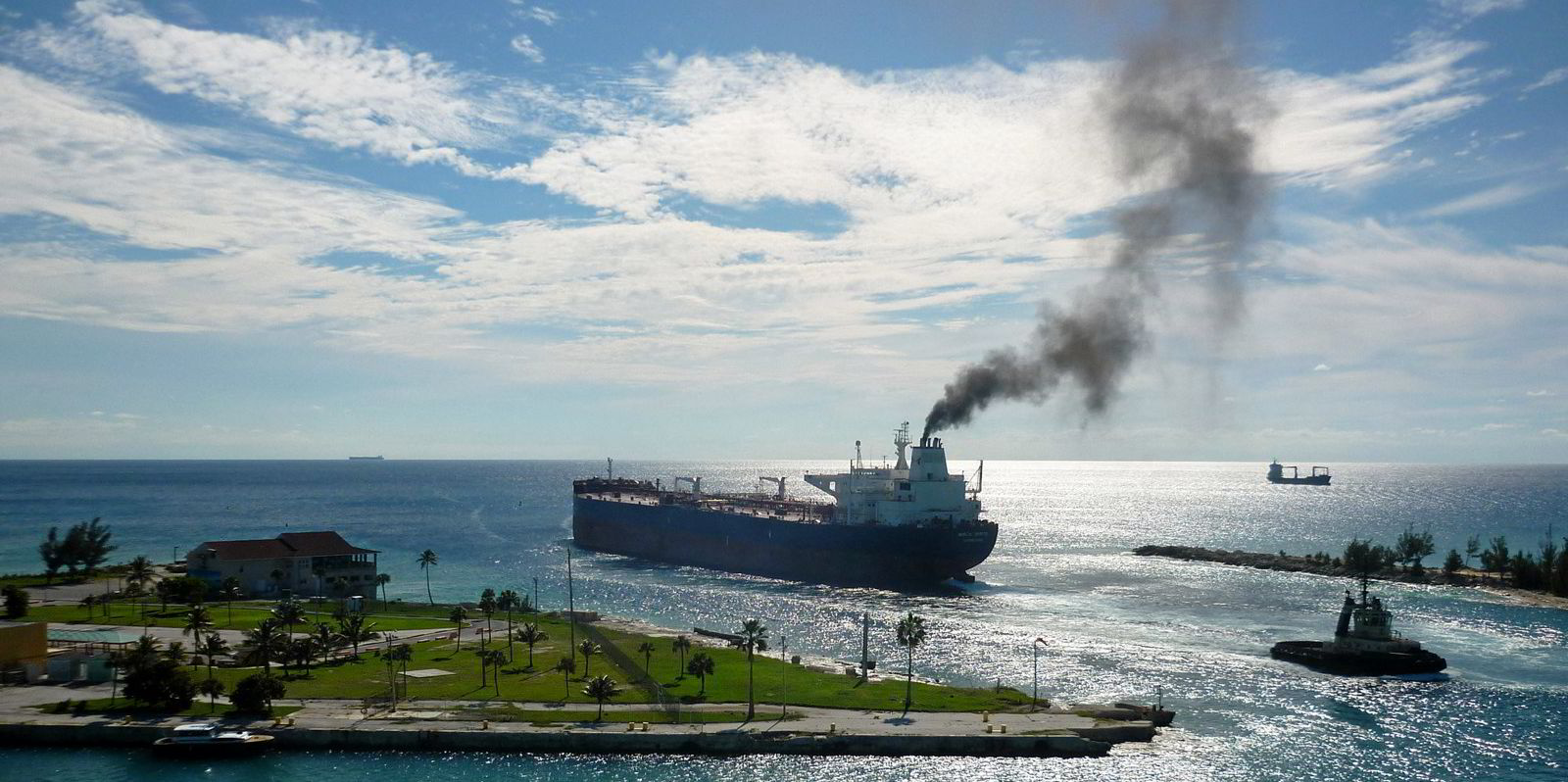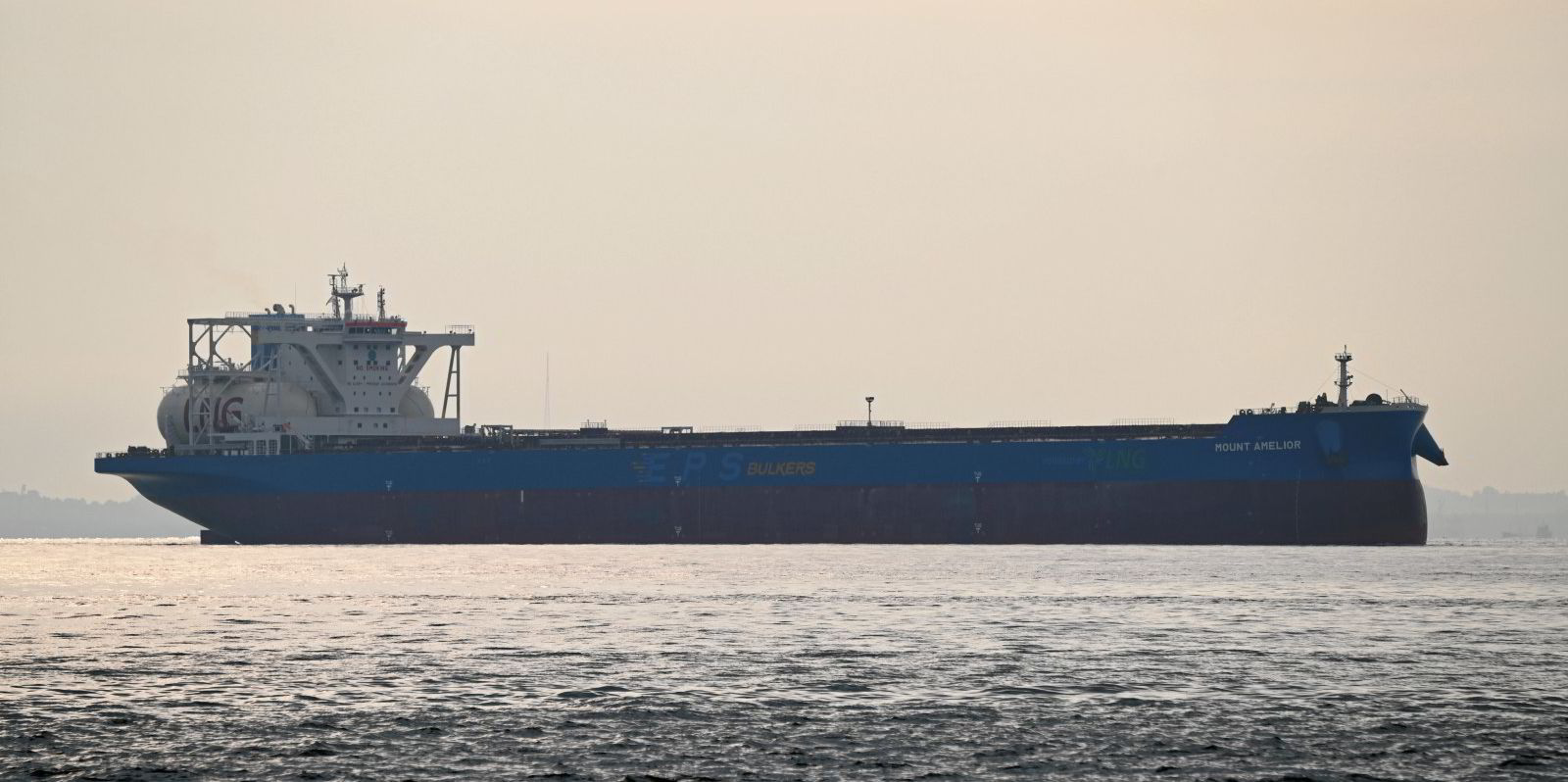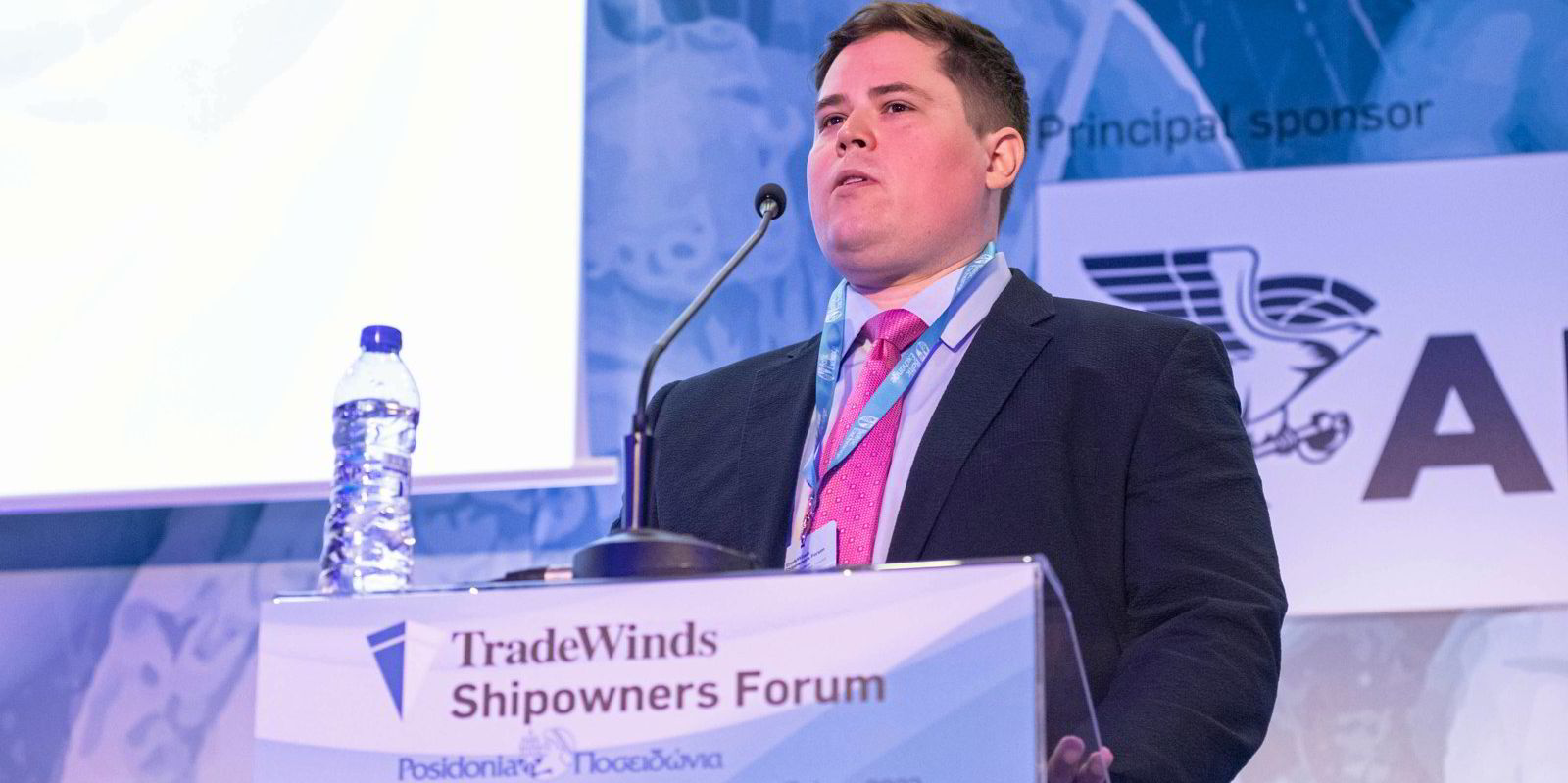Nautilus Labs chief executive Matt Heider has long complained that clauses traditionally found in the charter contracts that underpin shipping’s commercial relationship often stand in the way of fuel savings and emissions cuts.
Now his New York technology company, best known for its fleet and voyage optimisation platforms, is aiming to be part of the solution with the launch of its new offering Green Charter, which strives to bring data sharing that is needed to decarbonise the industry.
The Green Charter aims to use machine learning-based data to foster new legal frameworks in shipping contracts, putting Nautilus in the relationship between shipowners and charterers as a “shared source of truth between shipowners and charterers to improve transparency and collaboration” in a bid to incentivise efficiencies.

He told TradeWinds that the company has spent the last six years developing technology to deliver fuel savings.
“What we’ve seen over the course of time is consistently we run into these barriers to efficiency that are outside the bounds of control of individual companies and individual users,” Heider said.
“What that is, is the underlying commercial frameworks that exist in the industry. It’s hard to build a maximally efficient building on a very shaky foundation.”
Heider said Green Charter emerges from the company’s efforts to facilitate data sharing between counterparties while reducing claims risk and driving mutually beneficial outcomes between shipowners and charterers.
“That’s what Green Charter is,” Heider said. “It’s a legal transformation where you’re baking into your commercial agreements the ability to share more information, act on more information, and have more open transparency and trust built into a charterparty.”

The Green Charter offering will incorporate digital twins, which are replicas of physical ships, to simulate vessel performance and operational outcomes, and then offer dynamic optimisation recommendations, performance reports and alerts to drive collaboration between shipowners and charterers.
Nautilus said technology will help implement new commercial clauses that ensure actions achieve peak efficiency, boosting profits and reducing emissions for both sides.
Identifying inefficiencies
Nautilus recently issued a white paper with Bimco, a global shipping industry group, laying out some of the inefficiencies. They pointed out that voyage charter contracts do not incentivise optimal arrival times. Demurrage charges that provide shipowners with revenue when they face port delays also encourage ships to speed up to arrive at their destination as soon as possible and then wait, even though faster speeds contribute to higher fuel use.
Also, they wrote that time-charter contracts are set up in a way that does not incentivise efficiencies because of split incentives.
Shipowners, for example, are not incentivised to invest in making a vessel more efficient because they do not pay for fuel or receive the benefits of fuel efficiency.
To reduce emissions, Nautilus and Bimco said charter contracts should financially reward owners for making improvements to vessels and create joint accountability for a specified Carbon Intensity Indicator (CII) grade, as well as move away for warranted speeds and create terms that promote “sail fast then wait” behaviour.
Legal advice
Bimco has been working on its own legal clauses to factor in things such as the International Maritime Organization’s CII and the European Union Emissions Trading System.
Asked for the source of legal advice behind its Green Charter, Heider said Nautilus worked with in-house lawyers of the technology firm’s clients. Nautilus customers include TotalEnergies, Eastern Pacific Shipping, BHP, XT Shipping and Gunvor Group.

“We work sort of hand in glove with those teams, because ultimately it’s their relationship that’s changing,” he said.
“We act as an independent, shared source of truth where we can receive information, share information and permission in the right way, make sure the insights are accurate, and use it to enable these types of new commercial clauses. But it ultimately is still a commercial negotiation.”
That means both sides of a shipping deal will still have their lawyers on each side of that commercial relationship, and they have to come to an arrangement that they can agree on, he said.
Read more
- Viewpoint: Why ammonia will accelerate autonomy, usher in a new safety era and reshape shipping
- Podcast: Ocean industries limber up for the burgeoning carbon capture and storage opportunity
- Green Seas: At Nor-Shipping, carbon is everything everywhere all at once
- Podcast: Who’s going to foot the bill to decarbonise shipping?
- Going long: Alternative fuels for shipping will require a sea change in the bunker-buying mindset



